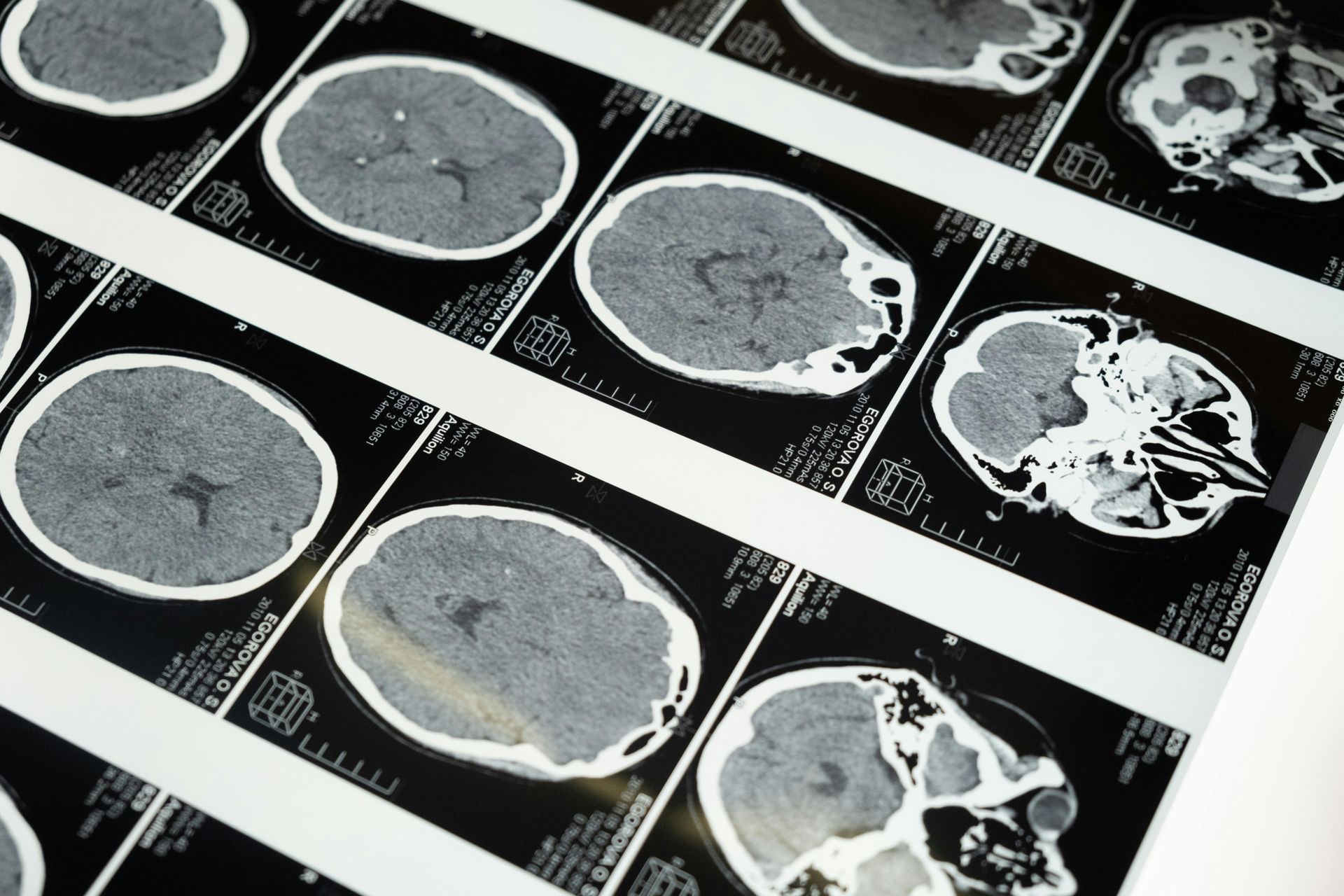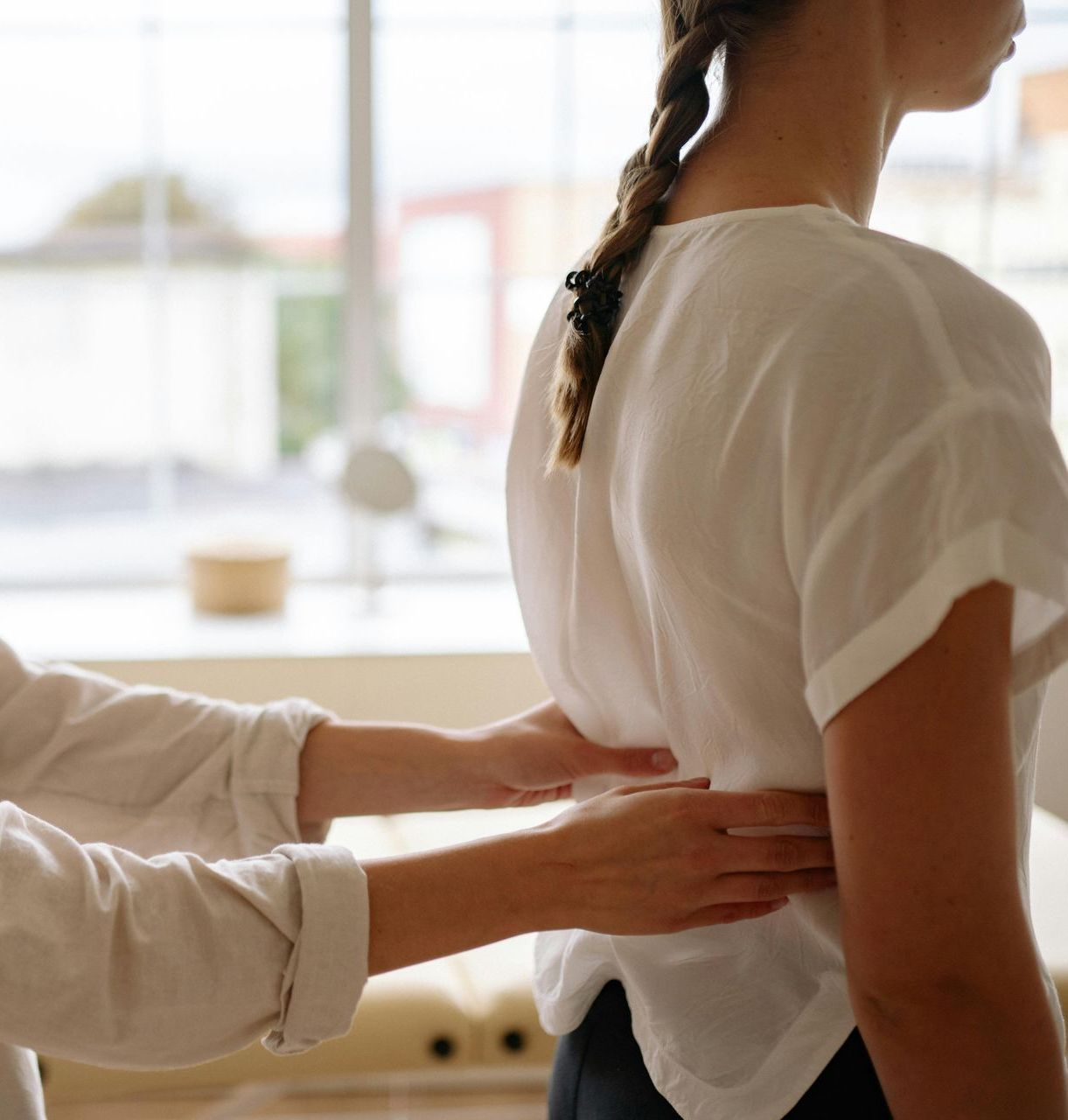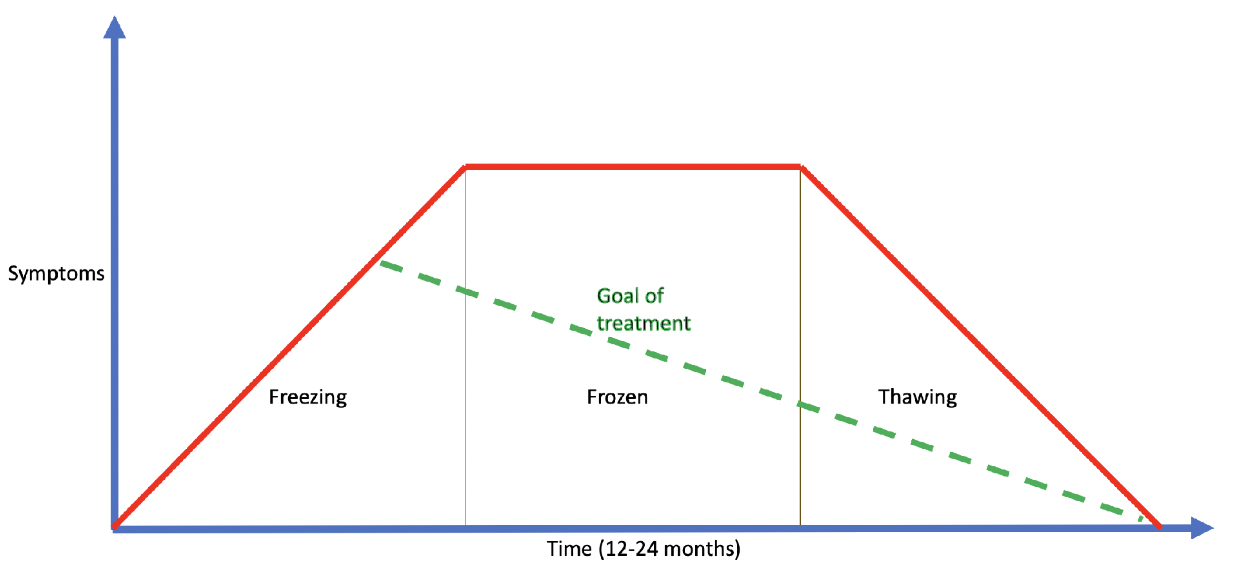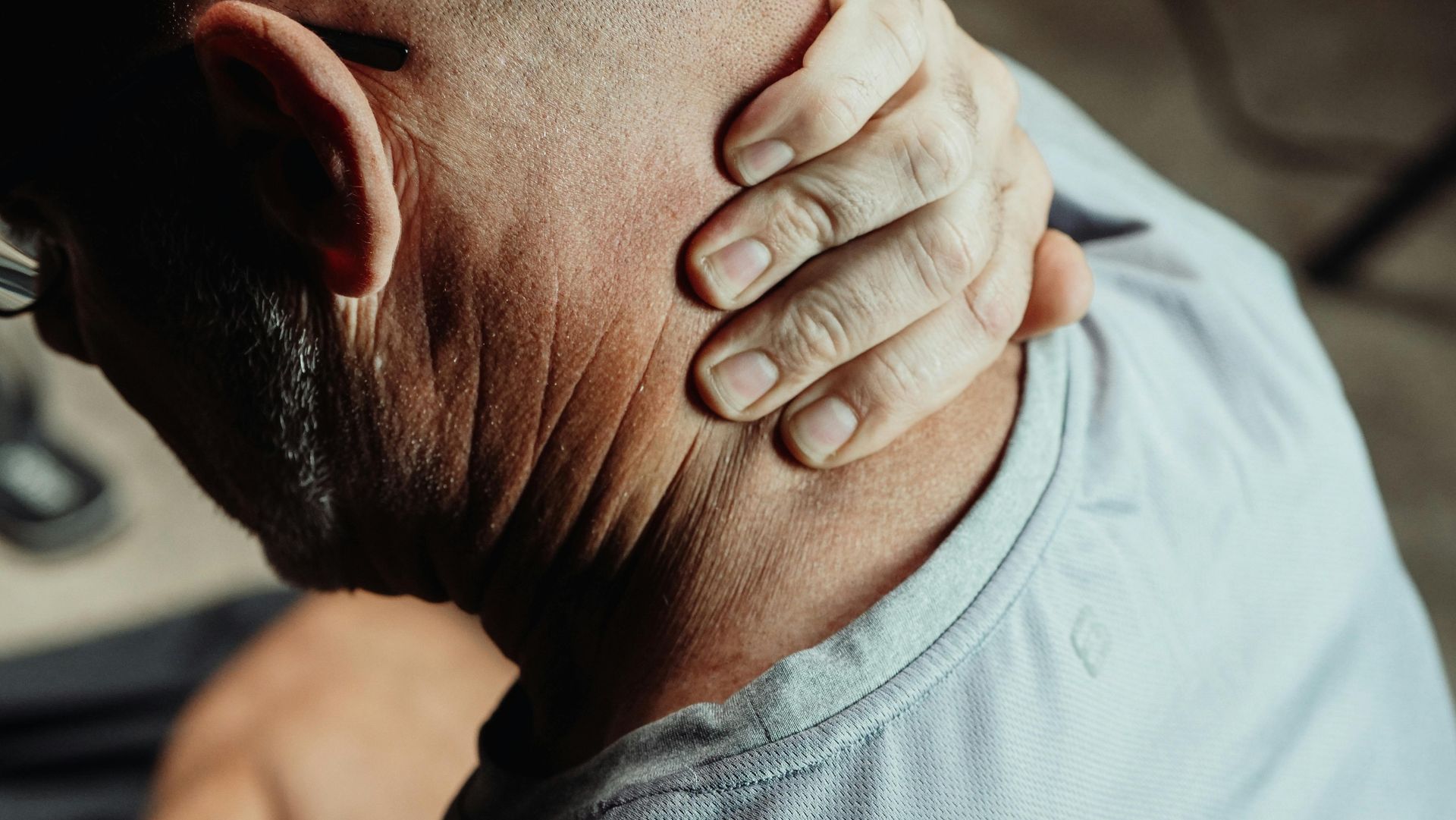Adhesive Capsulitis
Adhesive capsulitis, or frozen shoulder, is a condition that affects the capsule/lining of the shoulder joint. It occurs most commonly in people aged 40-60 and
while it can result from an injury or surgery to the shoulder, in the majority of cases there is no obvious cause.
The condition involves inflammation and scarring of the shoulder joint capsule. The inflammation causes pain, particularly at night, while the scarring results in reduced range of motion in the shoulder joint as the capsule tightens.
Then if the shoulder is pushed into extreme positions, the scar tissue becomes irritated, causing more discomfort. While there is often no cause, adhesive capsulitis occurs more commonly in people with diabetes and other systemic inflammatory diseases, so it may be worth performing some blood tests if
these haven’t been done previously. Imaging with an X-ray and ultrasound (or sometimes an MRI) is not always essential as adhesive capsulitis can be diagnosed based on symptoms and clinical tests, but may be performed to ensure there is not another diagnosis to explain the symptoms.
Adhesive capsulitis has a natural history of resolution after typically 12-24 months. It is characterised by 3 phases: freezing, frozen and thawing phase. The freezing phase is often the most painful, as the inflammation causes progressive pain and loss of range of motion.
The duration of symptoms is often unchanged by treatments, however the goal of management strategies is to reduce pain and improve function during the course of the condition.
Treatment for adhesive capsulitis depends on the severity of symptoms and impact on life.
Gentle range of motion and strengthening exercises with a physiotherapist can help with maintaining function, while oral anti-inflammatories can help with the inflammatory pain.
When the pain, particularly at night, is not well controlled, then a hydrodilatation may be an option.
A hydrodilatation is an injection into the shoulder joint under ultrasound guidance, using a combination of cortisone, a potent anti-inflammatory, and normal saline, to dilate/expand the joint capsule. This injection is performed to treat the inflammatory pain, particularly in the freezing phase, so that patients can sleep and perform everyday activities with more comfort.
Our Sport and Exercise Physician can assess your condition and order investigations where required. He can also perform a hydrodilatation in the clinic under ultrasound guidance if deemed appropriate and can follow up clinical progress.











